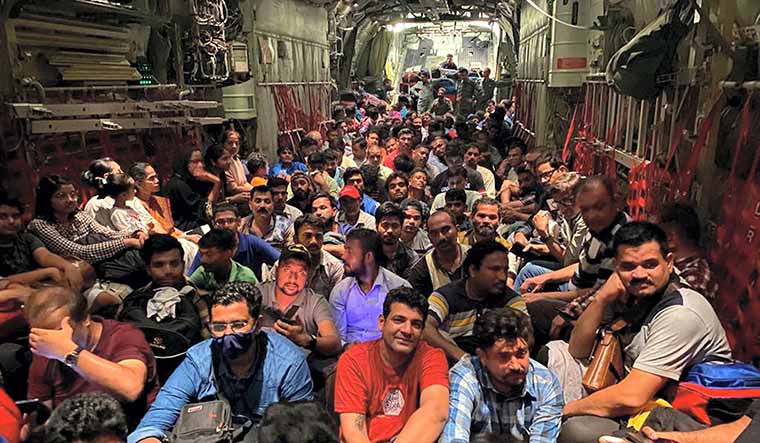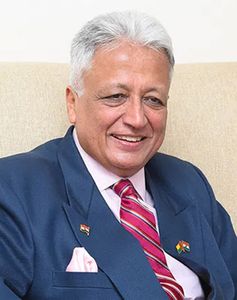LIVING IN KHARTOUM can be incredibly frustrating and exciting in equal measure. The facilities are limited, sharia constricts personal freedoms, the people are warm and friendly. I spent five years as India’s ambassador in Sudan, an unpredictable nation, and it was a truly amazing learning experience.
Who are the Sudanese?
Their identity is still forming through an ongoing historical process of tribal and regional amalgamation; parallel faultlines are just below the surface.
India has great brand equity in Sudan. We have given over $1 billion in soft loans for infrastructure projects.
I was posted in Sudan when a peace deal ended Africa’s longest running civil conflict (41 years), and when the African non-Muslim south voted to secede from the Arabised and heavily Islamic north. That conflict was less about religion and ethnicity than about resources and dignity.
Even as the war was winding down in the south, an insurrection began in 2003, in Darfur, pitting Arabised Muslims against African Muslims. An exhausted regime outsourced the conflict to a bunch of vicious Arab tribes, collectively known as the Janjaweed (roughly, warrior on a horse). They were authorised to rape, loot, plunder and abduct, and were led by a brute called Hamdan Dagalo, a former cattle herder, who was a darling of the then president. The army in Darfur was commanded by Abdel Fattah al-Burhan, now the army chief and president.
The Janjaweed metamorphosed into what is grandly called the Rapid Support Forces, and became a kind of praetorian guard.
In 2008, Chad-backed rebels attacked Khartoum, the RSF fought them on the streets while the former president cowered in his basement and western diplomats sought refuge in India House.
In 2009, long-time dictator Omar Hassan al-Bashir, who became a close friend, was indicted by the International Criminal Court for genocide and war crimes. Tightening western sanctions since 1993 (when the US declared Sudan a state sponsor of terrorism) ruined the economy, inflation soared, the currency collapsed, agriculture declined, and industry froze. Inspired by the short-lived Arab Spring of 2011, people took to the streets in 2019, wanting the regime to go.
Upset with the government crackdown on unarmed civilians, and worried about its future repercussions on themselves, dearest friends Dagalo and al-Burhan got together to boot out Bashir and put him in jail, forming a hybrid civilian-military government headed by a civilian prime minister.
Two years later, the PM was kicked out and the two military fellows became the leaders of the country.
So why are they fighting?
It is about personality and property. al-Burhan tried to marginalise his erstwhile comrade and get sole control of the country’s natural resources like gold and oil, and reneged on his promise to integrate the RSF into the Sudanese military. Furious, Dagalo ordered his storm troopers into the streets of the capital and seized military bases, prompting the latter to use its air force to hit the RSF.
The two belligerents are very rich and have tens of thousands of fighters, foreign backers, and other resources. Like thousands of others, their families have studied or received medical assistance in India.
In an interview, Dagalo ranted that al-Burhan was a criminal who wanted to destroy the country and would be brought to justice or “die like any dog”. In fact, Dagalo only appeared on the national political scene four years ago. In that short time, he has drawn the army, and all of Sudan, into an unprecedented confrontation. It is a fight to the finish. Whoever wins will be the next president of Sudan, the loser will be jailed, exiled or killed. Such prolonged conflict has devastated other countries in the Middle East and Africa―from Lebanon and Syria to Libya and Ethiopia and Somalia.
What about the people?
Since its independence in January 1956, Sudan has seen long periods of military rule punctuated by some democratic interludes during which the politicians fought each other ferociously for power and pelf. Sick of the political shenanigans, Sudanese welcomed the military as a factor for stability. Over the years, the people have learned to live with adversity. There are grassroots networks of citizens in and around Khartoum tirelessly helping those caught in the crossfire. Much of this good work is led by young volunteers operating at local neighbourhood level in thousands of “resistance committees”. They were the backbone of the movement that called for a return to civilian rule.
The Indian community, mainly Gujaratis, many of whom have been in Sudan for generations, has a similar time-tested mutual support system. They may or may not want to leave their businesses.
Some so-called developed countries have evacuated their diplomats and officials. The UN has issued warnings and appeals that have failed to stop the violence. Sudan’s neighbours―Egypt, Ethiopia, Libya, Chad, the Central African Republic, Eritrea and South Sudan―have their own interests. None is a paragon of democracy. Egypt loves the Sudanese military. Saudi Arabia is buddies with the Rapid Support Forces who fought in the Saudi-led invasion of Yemen. Ethiopia wants Sudan to stop challenging the Grand Renaissance Dam on the Blue Nile. Frenemy Chad has asked Sudan to stop meddling in its affairs.
Memories of the 2011 Arab Spring that booted out several dictators haunt the monarchies, and while they do want a peaceful and stable Sudan, they do not want it to be a seductive beacon of democracy in the region. That is the hard reality.
The US has announced another 72-hour ceasefire, but neither side seems to be observing it. Saudi Arabia and Jordan have evacuated their citizens, and some Indian nationals, among others.
India has already started moving its people who wish to leave out of Port Sudan on the Red Sea, under Operation Kaveri. We have done it in Lebanon, Libya, Iraq, Yemen, South Sudan, Ukraine under the direct supervision of our leaders. Our diplomats will be the last to get out. That is the true strength of Indian diplomacy and our diplomats.
Vohra is an Indian Foreign Service officer of the 1973 batch.



